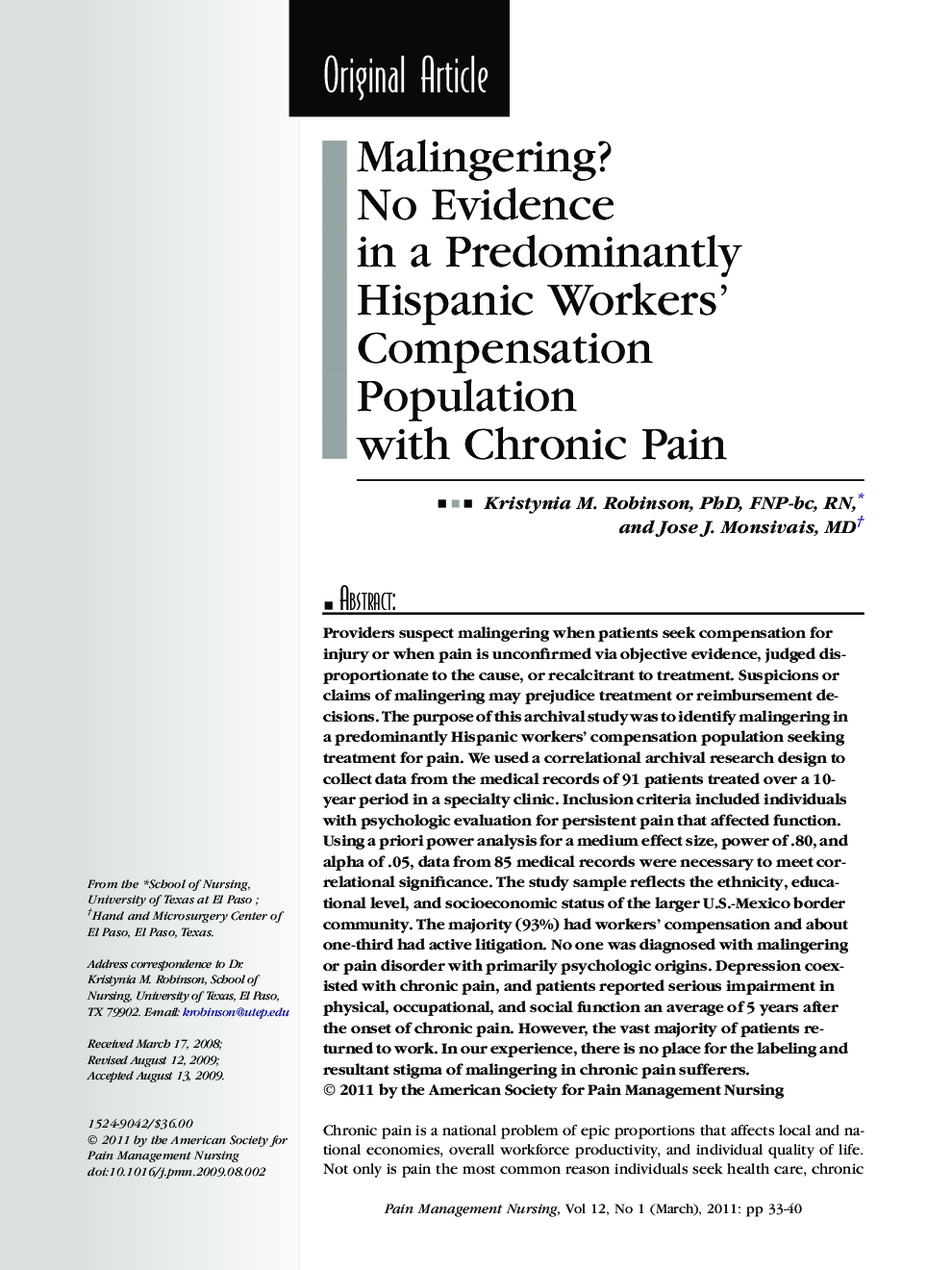| Article ID | Journal | Published Year | Pages | File Type |
|---|---|---|---|---|
| 2679807 | Pain Management Nursing | 2011 | 8 Pages |
Providers suspect malingering when patients seek compensation for injury or when pain is unconfirmed via objective evidence, judged disproportionate to the cause, or recalcitrant to treatment. Suspicions or claims of malingering may prejudice treatment or reimbursement decisions. The purpose of this archival study was to identify malingering in a predominantly Hispanic workers' compensation population seeking treatment for pain. We used a correlational archival research design to collect data from the medical records of 91 patients treated over a 10-year period in a specialty clinic. Inclusion criteria included individuals with psychologic evaluation for persistent pain that affected function. Using a priori power analysis for a medium effect size, power of .80, and alpha of .05, data from 85 medical records were necessary to meet correlational significance. The study sample reflects the ethnicity, educational level, and socioeconomic status of the larger U.S.-Mexico border community. The majority (93%) had workers' compensation and about one-third had active litigation. No one was diagnosed with malingering or pain disorder with primarily psychologic origins. Depression coexisted with chronic pain, and patients reported serious impairment in physical, occupational, and social function an average of 5 years after the onset of chronic pain. However, the vast majority of patients returned to work. In our experience, there is no place for the labeling and resultant stigma of malingering in chronic pain sufferers.
